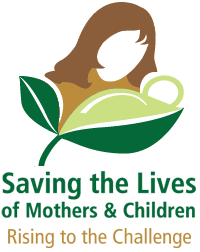 MDGs 4 and 5 aim to reduce child mortality and improve maternal health, respectively28 January 2013, Dubai – Ministers of health and high-level representatives from 22 countries of the Eastern Mediterranean Region will meet in Dubai from 29 to 30 January to agree on approaches to reduce maternal and child mortality and accelerate progress towards achieving Millennium Development Goals (MDGs) 4 and 5 in the Region – global goals set by world leaders to improve maternal and child health.
MDGs 4 and 5 aim to reduce child mortality and improve maternal health, respectively28 January 2013, Dubai – Ministers of health and high-level representatives from 22 countries of the Eastern Mediterranean Region will meet in Dubai from 29 to 30 January to agree on approaches to reduce maternal and child mortality and accelerate progress towards achieving Millennium Development Goals (MDGs) 4 and 5 in the Region – global goals set by world leaders to improve maternal and child health.
In 2010, the Global Strategy for Women’s and Children’s Health was developed under the auspices of the United Nations General-Secretary, Ban Ki-moon, and set out ways of working to save the lives of women and children. The strategy aims to accelerate progress on the health-related MDGs, particularly MDGs 4 and 5, in which progress has been slowest.
Countries of the Region have taken steps to meet these goals. While some have made impressive achievements, in others too many mothers and children continue to die. As a result, the average annual reduction rates for maternal and child mortality in the Region rank among the lowest in the world. Between 1990 and 2010, maternal mortality was reduced by 2.6% annually, and under-five mortality fell by just 2% per year.
It is estimated that 923 000 children under-five years of age and approximately 39 000 women of childbearing age still die in the Region every year. The vast majority of these deaths could be prevented with proven, cost-effective solutions. The meeting aims to ensure that more women and children in the Region have access to these solutions.
“All women should have access to antenatal care in pregnancy, skilled care during childbirth, and care and support in the weeks after childbirth”, said Dr Ala Alwan, WHO Regional Director for the Eastern Mediterranean. “WHO stresses the importance of all births being attended by skilled health professionals: timely management and treatment can make the difference between life and death.”
A child's risk of dying is highest in the neonatal period, the first 28 days of life. WHO emphasizes the importance of safe childbirth and effective neonatal care and taking steps (including vaccination) to prevent diseases such as pneumonia and diarrhoea, which are two of the main killers of children under five, as well as improving nutrition. Malnutrition is the underlying contributing factor in over one third of all child deaths, making children more vulnerable to severe diseases.
The meeting will pay particular attention to the situation in 10 priority high-burden countries identified under the United Nations Secretary-General’s Global Strategy for Women’s and Children’s Health: Afghanistan, Djibouti, Egypt, Iraq, Morocco, Pakistan, Somalia, South Sudan, Sudan and Yemen. These countries have been working with WHO, UNICEF and UNFPA to develop plans for scaling up action for discussion during the meeting. The plans will look at realistic scenarios of progress which can be put in place between now and 2015, and the resources needed to execute them.
Participants are expected to make individual commitments to improve coverage of maternal and child health interventions and services. The meeting will conclude with a Dubai Declaration on Maternal and Child Health in the Eastern Mediterranean Region.
The meeting, the first of its kind, will take place under the patronage of His Highness Sheikh Mohammed Bin Rashid Al Maktoum, Vice-President and Prime Minister of the United Arab Emirates and Ruler of Dubai. The event is being co-organized by WHO, UNICEF and UNFPA. Representatives of nongovernmental organizations and the donor community will also attend.


